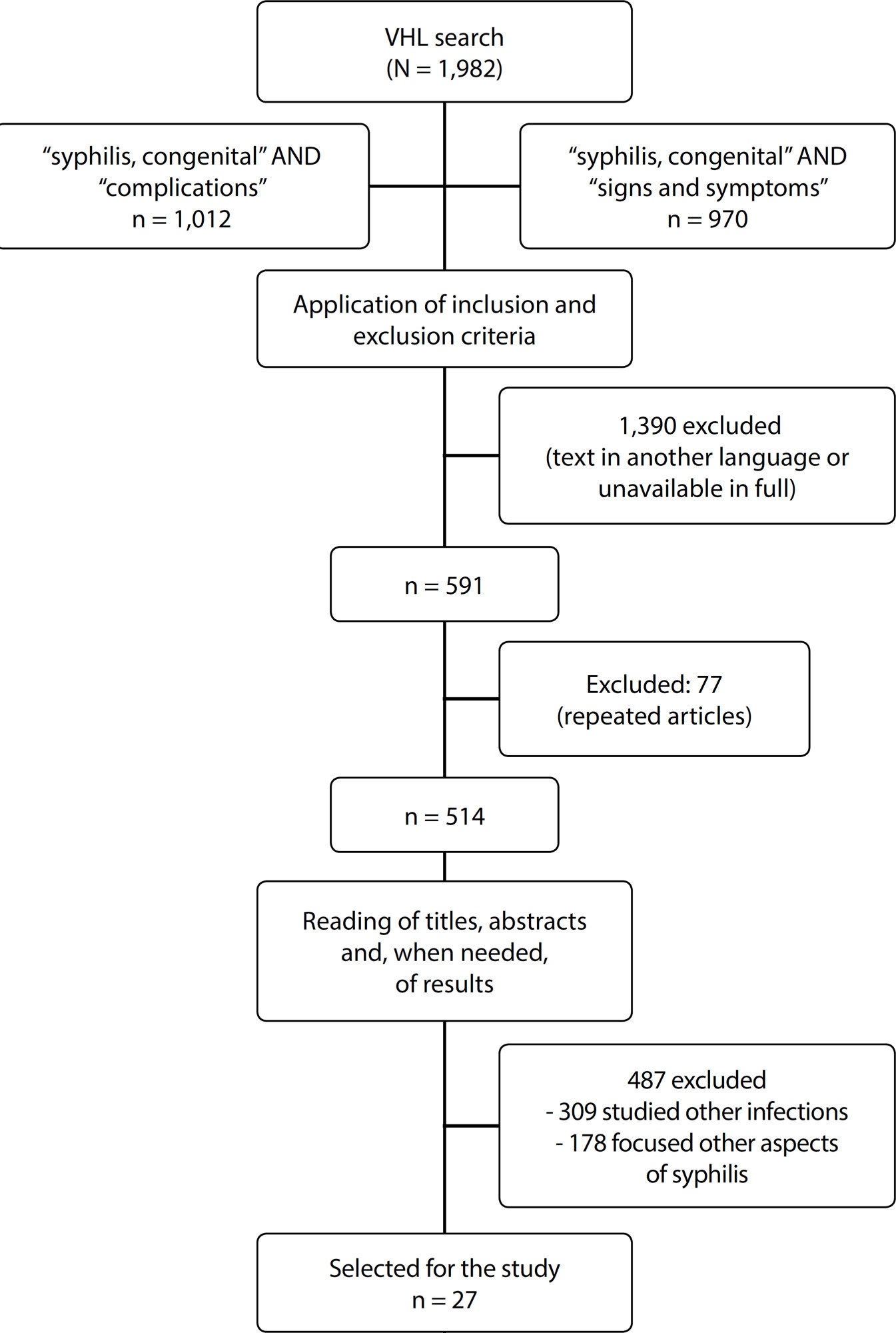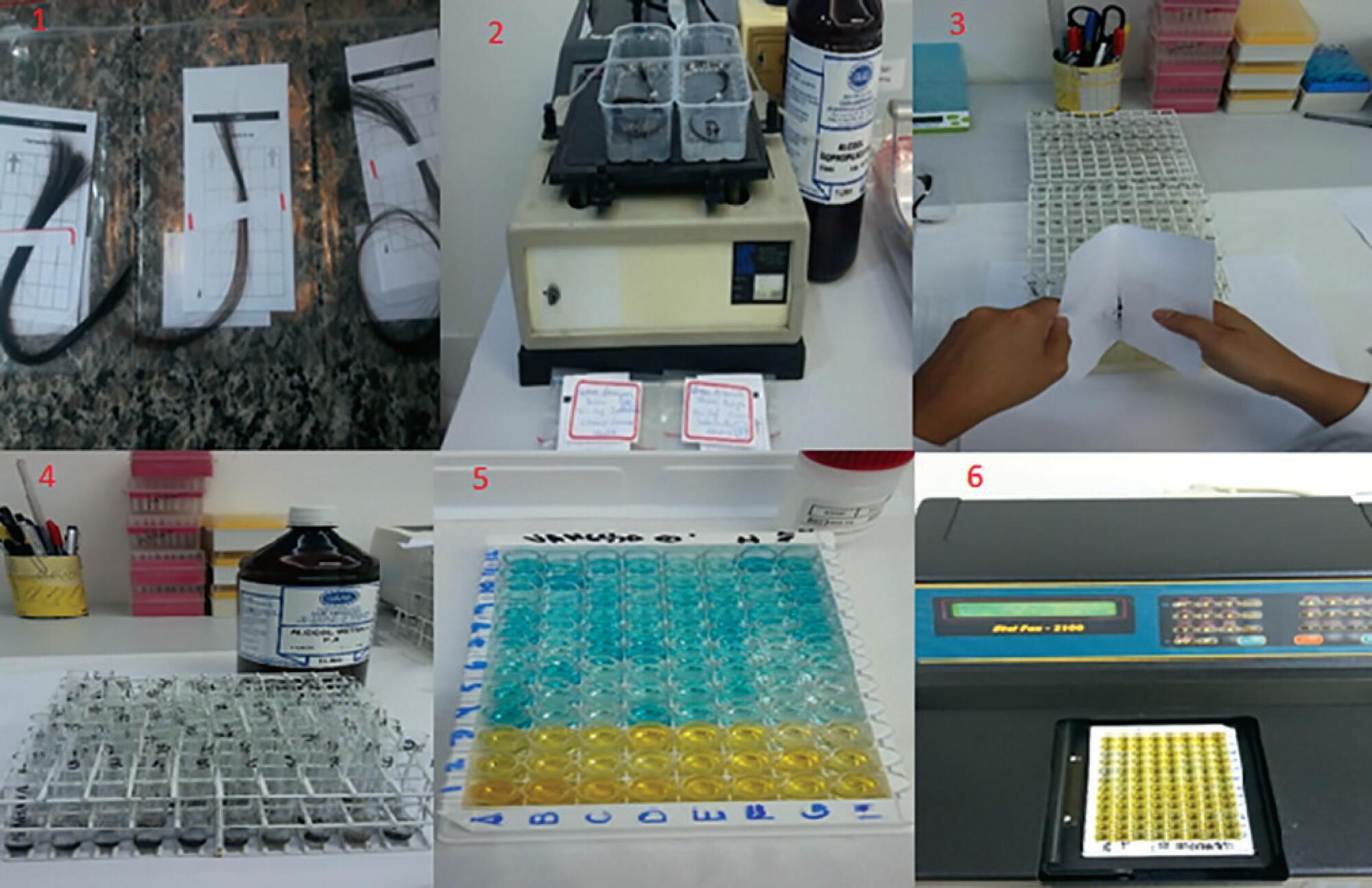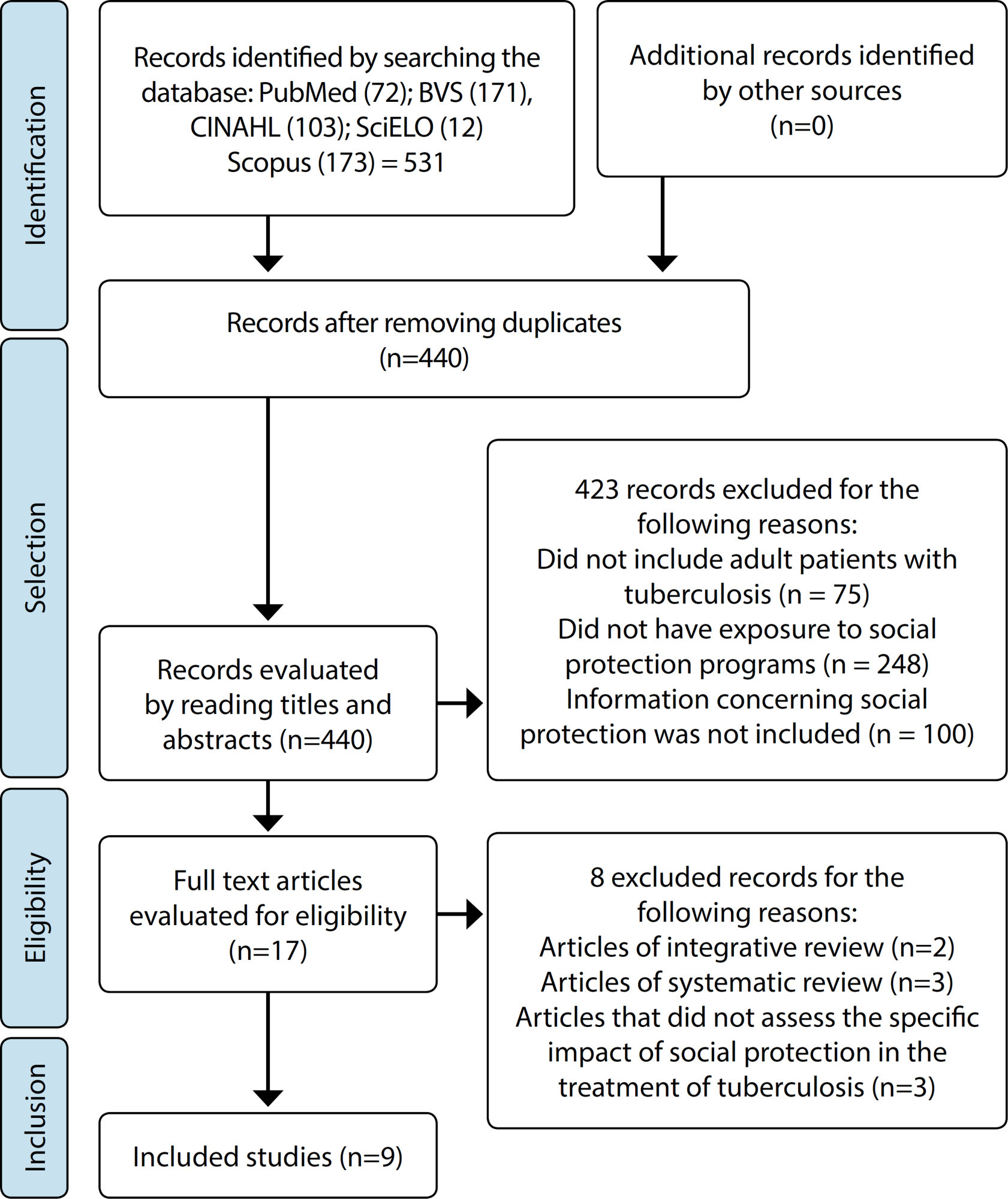-
ORIGINAL ARTICLE05-03-2024
Josicélia Dumêt Fernandes’ professional trajectory: contributions to psychiatric and mental health nursing
Revista Brasileira de Enfermagem. 2024;77(1):e20230174
Abstract
ORIGINAL ARTICLEJosicélia Dumêt Fernandes’ professional trajectory: contributions to psychiatric and mental health nursing
Revista Brasileira de Enfermagem. 2024;77(1):e20230174
DOI 10.1590/0034-7167-2023-0174
Views0See moreABSTRACT
Objectives:
to analyze nurse Josicélia Dumêt Fernandes’ life story, with emphasis on her work in the psychiatry and mental health fields.
Methods:
historical, qualitative research. Semi-structured interviews and documentary research were used as data collection techniques, collected from September to October 2021. For data analysis, we opted for the content analysis method and comparison with the Foucauldian philosophical framework.
Results:
four categories emerged: Transforming herself and mental health practices; (Re)framing professional practice; Nursing practice and power relations; and The paths and implications in the psychiatry and mental health fields.
Final Considerations:
the study of the biographer demonstrates a search for transformation of herself and mental health practices, with a rupture in paradigms and reframing of her practice in psychiatry and mental health.
-
ORIGINAL ARTICLE04-22-2024
Adherence to Covid-19 vaccination during the pandemic: the influence of fake news
Revista Brasileira de Enfermagem. 2024;77(1):e20230284
Abstract
ORIGINAL ARTICLEAdherence to Covid-19 vaccination during the pandemic: the influence of fake news
Revista Brasileira de Enfermagem. 2024;77(1):e20230284
DOI 10.1590/0034-7167-2023-0284
Views1See moreABSTRACT
Objectives:
to understand how fake news has influenced adherence to Covid-19 immunization, from the perspective of health professionals.
Methods:
a qualitative, descriptive-exploratory study was conducted in Campo Grande – MS. Twenty nursing professionals working in vaccine rooms or managing immunobiologicals participated through semi-structured interviews. The interviews were audio-recorded, fully transcribed, and subjected to thematic content analysis.
Results:
two categories emerged in which the professionals highlighted an increase in vaccine hesitancy among the population, influenced by fake news and denialist actions, which negatively interfered with the population’s trust in vaccines and in the professionals administering them.
Final Considerations:
concerns about vaccine safety and denialist actions by authorities and media outlets can contribute to the phenomenon of non-vaccination. The valorization of science, the promotion of educational actions, and raising public awareness about immunization were presented as strategies to increase vaccine coverage
-
ORIGINAL ARTICLE04-22-2024
Learning difficulties in school children: health and education professionals’ perceptions
Revista Brasileira de Enfermagem. 2024;77(1):e20230074
Abstract
ORIGINAL ARTICLELearning difficulties in school children: health and education professionals’ perceptions
Revista Brasileira de Enfermagem. 2024;77(1):e20230074
DOI 10.1590/0034-7167-2023-0074
Views0See moreABSTRACT
Objectives:
to understand health and education professionals’ perceptions regarding children’s learning difficulties in public schools.
Methods:
qualitative research, of the participatory action type, linked to Paulo Freire’s Research Itinerary. Forty-five professionals participated, through interviews and a Virtual Culture Circle. The analysis was developed through careful reading, reflection and interpretation of highlighted topics.
Results:
professionals discussed the (in)visibility of learning difficulties, strategies and resources in the educational sector and the search for solutions in the health sector. It was found that the production of complaints related to school learning is attributed predominantly as an individual problem of children or their family, exempting the educational institution from this process.
Final Considerations:
greater investment in professional training and development policies is urgently needed to facilitate coordination between sectors, with a view to overcoming outdated pedagogical and health models.
-
ORIGINAL ARTICLE04-22-2024
Mothers’ perception of the care of newborn in the home environment
Revista Brasileira de Enfermagem. 2024;77(1):e20230080
Abstract
ORIGINAL ARTICLEMothers’ perception of the care of newborn in the home environment
Revista Brasileira de Enfermagem. 2024;77(1):e20230080
DOI 10.1590/0034-7167-2023-0080
Views1See moreABSTRACT
Objectives:
to identify mothers’ perceptions about caring for newborns in the home environment, from the perspective of complexity thinking.
Methods:
qualitative, exploratory and descriptive research, carried out between November/2022 and February/2023. Data were collected through individual interviews with 21 mothers from southern Brazil who cared for newborns at home and analyzed using the thematic analysis technique.
Results:
the four thematic axes resulting from the data analysis: Living amidst order and disorder; embracing singularities; dealing with the certain and the uncertain; support network in the (re)organizing process demonstrate that the mother caring for a newborn in their home environment experiences a distinct and plural adaptive process, which must be welcomed and understood by health professionals who work within the family environment.
Final Considerations:
the care of newborns in a home environment, in the perception of mothers, requires differentiated attention and a formal or informal support network that considers the unique specificities of each woman/mother in the personal, family and social spheres. Therefore, in addition to the social support network, it is important to rethink home intervention approaches.
-
ORIGINAL ARTICLE04-22-2024
Nurses’ perception of the nursing process and its relationship with leadership
Revista Brasileira de Enfermagem. 2024;77(1):e20230371
Abstract
ORIGINAL ARTICLENurses’ perception of the nursing process and its relationship with leadership
Revista Brasileira de Enfermagem. 2024;77(1):e20230371
DOI 10.1590/0034-7167-2023-0371
Views0See moreABSTRACT
Objectives:
to describe Nurses’ perception of the Nursing Process and its relationship with leadership.
Methods:
action research conducted between September/2021 and April/2022 with nurses from a medium-sized hospital in southern Brazil. The data investigated, one of the stages of the method, was collected using the Focus Group technique and submitted to Strategic Focus Analysis.
Results:
three categories emerged from the organized and analyzed data, namely: Nursing Process: a tool that qualifies nursing care; Conditions that weaken the Nursing Process; and Strategies that enhance the Systematization of Nursing Care.
Final Considerations:
the perception of the Nursing Process and its relationship with leadership are not always understood as complementary themes. Although they recognize that the Nursing Process is sometimes imposed as normative, nurses do not perceive the importance of the role of the leader, who is considered a key player in conducting and boosting the Systematization of Nursing Care.

-
03-18-2024
Nursing rights in comics: educational technological innovation report
Revista Brasileira de Enfermagem. 2024;77:e20230438
Abstract
Nursing rights in comics: educational technological innovation report
Revista Brasileira de Enfermagem. 2024;77:e20230438
DOI 10.1590/0034-7167-2023-0438
Views0See moreABSTRACT
Objectives:
to report an educational technology construction on nursing professionals’ rights.
Methods:
an experience report on educational technology construction during the crediting of university extension hours in an undergraduate nursing course at a Brazilian public university, between March and June 2023. The Deming cycle was used as a procedural method.
Results:
four meetings were held between students and extension workers. Eight comic books were produced based on the Code of Ethics for Nurses, addressing professional autonomy, fair remuneration, risk-free work, denial of exposure in the media and others. The Deming cycle proved to be an important strategy for constructing products.
Conclusions:
nursing professionals’ rights must be discussed and improved. Educational technologies, such as comic books, provide playful and reflective learning.

-
ORIGINAL ARTICLE03-18-2024
Nurses’ workload during the COVID-19 pandemic: potential for experiences of moral distress
Revista Brasileira de Enfermagem. 2024;77:e20230200
Abstract
ORIGINAL ARTICLENurses’ workload during the COVID-19 pandemic: potential for experiences of moral distress
Revista Brasileira de Enfermagem. 2024;77:e20230200
DOI 10.1590/0034-7167-2023-0200
Views0See moreABSTRACT
Objectives:
to understand nurses’ experiences of moral distress related to work overload during the COVID-19 pandemic in Brazil.
Methods:
qualitative research, whose data collection occurred through individual interviews with 19 nurses who worked on the front line of COVID-19 in health services in southeastern Brazil. Data were analyzed using thematic content analysis.
Results:
work overload proved to be a powerful source of experiences of moral distress due to excessive working hours during vaccination, double working hours, a troubled relationship due to pressure from managers and the population and physical and mental exhaustion, which prevented nurses from act according to their judgment.
Final Considerations:
nurses’ work overload reflects on quality patient care and prevents nurses from acting in accordance with their moral principles, generating moral distress in nurses.
-
REVIEW03-15-2024
Resources for health literacy among caregivers of prematurely born children: a scoping review
Revista Brasileira de Enfermagem. 2024;77(1):e20230062
Abstract
REVIEWResources for health literacy among caregivers of prematurely born children: a scoping review
Revista Brasileira de Enfermagem. 2024;77(1):e20230062
DOI 10.1590/0034-7167-2023-0062
Views1See moreABSTRACT
Objectives:
to map the available evidence on resources used to promote health literacy among caregivers of prematurely born children during outpatient follow-up.
Methods:
the Joanna Briggs Institute’s scope review protocol was utilized. The search encompassed six databases, incorporating studies from 2012 to 2022.
Results:
the three included publications revealed that the resources employed are: mobile applications, phone calls, individual counseling, videos, educational pamphlets, and group discussions. Implementing an education protocol during the transition home enhances scientifically grounded health promotion rates.
Conclusions:
there is limited literature addressing the health literacy of these caregivers. The nursing team plays a crucial role in health education and in developing resources applicable to these families.

-
REVIEW07-14-2021
Complications, clinical manifestations of congenital syphilis, and aspects related to its prevention: an integrative review
Revista Brasileira de Enfermagem. 2021;74(4):e20190318
Abstract
REVIEWComplications, clinical manifestations of congenital syphilis, and aspects related to its prevention: an integrative review
Revista Brasileira de Enfermagem. 2021;74(4):e20190318
DOI 10.1590/0034-7167-2019-0318
Views0See moreABSTRACT
Objectives:
to identify the scientific evidence about the clinical complications and manifestations of congenital syphilis and aspects related to its prevention.
Methods:
integrative review after a search in the databases LILACS and MEDLINE, carried out in March 2018, using the descriptors “syphilis, congenital”, “complications”, and “signs and symptoms”, leading to the selection of 27 researches.
Results:
the publications found were published from 1966 to 2017, and most of them were from Latin America and Africa. Negative outcomes, laboratory changes, and the clinical manifestations in congenital syphilis, whether early or delayed, were, respectively: low weight at birth, anemia, hepatosplenomegaly, and dental alterations. The lack of treatment of the pregnant women in the prenatal was the most common occasion in which the opportunity to prevent the complications of congenital syphilis was lost.
Conclusions:
the scientific evidences analyzed showed serious complications of congenital syphilis that could be avoided if early opportunities of diagnosing and treating the pregnant women are not lost during the prenatal.

-
ORIGINAL ARTICLE07-15-2020
Cultural adaptation of Infant Feeding Intentions Scale (IFI) for pregnant women in Brazil
Revista Brasileira de Enfermagem. 2020;73:e20190103
Abstract
ORIGINAL ARTICLECultural adaptation of Infant Feeding Intentions Scale (IFI) for pregnant women in Brazil
Revista Brasileira de Enfermagem. 2020;73:e20190103
DOI 10.1590/0034-7167-2019-0103
Views0See moreABSTRACT
Objectives:
to translate and culturally adapt the Infant Feeding Intentions Scale for pregnant women in Brazil.
Methods:
methodological study that included stages of translation, synthesis, face and content validation, back translation and semantic assessment. In the face and content and semantic validation stages, we used the Content Validity Index for individual items and for the overall scale for clarity and representativeness.
Results:
nine (100.0%) experts participated in face and content validation, and the average index obtained was 85.0% for representativeness. In the semantic assessment, performed with 31 (100.0%) pregnant women, the tool was considered clear, obtaining an average index of 91.0%.
Conclusions:
the Brazilian version of the scale was considered representative and clear. After assessing psychometric properties, the scale is expected to be valid and reliable to assess maternal intention to breastfeed exclusively until the infant’s six months of life in different Brazilian settings.
-
ORIGINAL ARTICLE03-24-2021
Development, validation and application of clinical simulation scenarios for assessment of stomatherapy specialists
Revista Brasileira de Enfermagem. 2021;74(1):e20200360
Abstract
ORIGINAL ARTICLEDevelopment, validation and application of clinical simulation scenarios for assessment of stomatherapy specialists
Revista Brasileira de Enfermagem. 2021;74(1):e20200360
DOI 10.1590/0034-7167-2020-0360
Views0See moreABSTRACT
Objectives:
to build and validate three clinical simulation scenarios and report the application with candidates for the specialist’s degree in stomatherapy.
Methods:
methodological study, building three scenarios and evaluation checklists; content validation with judges, using content validity index and Modified Kappa Coefficient; pre-test and application.
Results:
scenarios built based on nursing care for: 1. insufficiency and venous ulcer; 2. demarcation of intestinal stomia; and 3. Clean intermittent catheterization. In the content validation of the 24 items appreciated, 83%, 80%, and 92% were validated without change. In the pre-test, the objectives and checklists were adjusted. In the application, to standardize the evaluation, actors and evaluators were trained previously, and each candidate passed the three stations.
Conclusions:
scenarios built and with validated content, based on evidence and covering the three areas of stomatherapy. The pre-test allowed for adjustments in the scenarios, and the candidates achieved the expected objectives.
-
ORIGINAL ARTICLE12-07-2020
Management of home care by family caregivers to elderly after hospital discharge
Revista Brasileira de Enfermagem. 2020;73:e20200474
Abstract
ORIGINAL ARTICLEManagement of home care by family caregivers to elderly after hospital discharge
Revista Brasileira de Enfermagem. 2020;73:e20200474
DOI 10.1590/0034-7167-2020-0474
Views1See moreABSTRACT
Objective:
To understand the management of home care by family caregivers of dependent elderly people after hospital discharge.
Methods:
Qualitative research guided by hermeneutics-dialectic, anchored in the theory of communicative action. Data collection took place using a semi-structured interview with 11 participants.
Results:
Two categories were constructed: Management of the many types of care by the caregiver and the relationship between family caregiver and health care network. Care and management actions carried out routinely cause major changes in the family caregiver’s life. He/she does not recognize planning, home care periodicity or support in required procedures.
Final Considerations:
The management of home care for dependent elderly people after hospital discharge is complex, involving physical and emotional overloads, as well as difficulties in getting support from health services. The planning shared between the health team and the family since the discharge is required, and the better visibility of the role of primary care when the patient is assisted by a home care service.
-
07-09-2021
Sexuality is associated with the quality of life of the elderly!
Revista Brasileira de Enfermagem. 2021;74:e20201272
Abstract
Sexuality is associated with the quality of life of the elderly!
Revista Brasileira de Enfermagem. 2021;74:e20201272
DOI 10.1590/0034-7167-2020-1272
Views0See moreABSTRACT
Objective:
to analyze the association between sexuality and quality of life of Brazilian elderly residents in the community.
Methods:
a cross-sectional study conducted with 477 Brazilian elderly. The data were collected between August and October 2020. We used the EVASI and WHOQOL-OLD (World Health Organization Quality of Life). Data analysis was performed with Mann-Whitney, Spearman and Kruskal-Wallis correlation tests, with Bonferroni post-hoc application when necessary, considering a 95% confidence interval.
Results:
there was a statistical association between all dimensions of sexuality and the general quality of life of the elderly (p<0.05).
Conclusion:
the stimulation of sexuality can be configured as an innovative and holistic strategy focused on the promotion of health and active aging, since this study found the association between sexuality and the general quality of life of elderly people.
-
ORIGINAL ARTICLE06-01-2020
Stress and cortisol levels among members of the nursing team
Revista Brasileira de Enfermagem. 2020;73:e20180953
Abstract
ORIGINAL ARTICLEStress and cortisol levels among members of the nursing team
Revista Brasileira de Enfermagem. 2020;73:e20180953
DOI 10.1590/0034-7167-2018-0953
Views0See moreABSTRACT
Objective:
To analyze the characteristics of hospital nursing professionals with the presence of stress, and to associate this with capillary cortisol.
Method:
A cross-sectional, exploratory and correlational study, conducted in a hospital in São Paulo, Brazil. A total of 164 nursing professionals participated; the Perceived Stress Scale was administered, and hair samples were obtained for laboratory analysis. Data were entered into a Microsoft Excel spreadsheet (2010), and then into Microsoft Office and the R software, version 3.2.2.
Results:
High levels of capillary cortisol in 47% of participants suggest the presence of stress, but no statistical significance between cortisol and stress levels were found.
Conclusions:
Stress and capillary cortisol levels were indicative of stress among nursing professionals; however, no association between them was found, although the values found were above those recommended.

-
REVIEW06-18-2021
Impact of social protection programs on adults diagnosed with Tuberculosis: systematic review
Revista Brasileira de Enfermagem. 2021;74(3):e20190906
Abstract
REVIEWImpact of social protection programs on adults diagnosed with Tuberculosis: systematic review
Revista Brasileira de Enfermagem. 2021;74(3):e20190906
DOI 10.1590/0034-7167-2019-0906
Views0See moreABSTRACT
Objectives:
to analyze the impact of social protection programs on adults diagnosed with Tuberculosis.
Methods:
systematic review conducted by PRISMA, with registration PROSPERO CRD42019130884. The studies were identified in the VHL, PubMed, Scielo, CINAHL and Scopus databases, using the descriptors “Social Protection” and “Tuberculosis”, in combination with keywords combined with Boolean operators AND and OR. Observational and interventional studies published until October 23, 2019, in Portuguese, English and Spanish, were included.
Results:
social protection programs improve the treatment of tuberculosis, cure rates, adherence to treatment, the provision of services for the control of TB and reduce poverty.
Conclusions:
social protection programs have a positive impact on the treatment and control of people diagnosed with Tuberculosis.

-
ORIGINAL ARTICLE12-05-2019
Functional health literacy in hypertensive elders at primary health care
Revista Brasileira de Enfermagem. 2019;72:266-273
Abstract
ORIGINAL ARTICLEFunctional health literacy in hypertensive elders at primary health care
Revista Brasileira de Enfermagem. 2019;72:266-273
DOI 10.1590/0034-7167-2018-0897
Views0See moreABSTRACT
Objective:
to assess the relationship between inadequate functional health literacy and inadequate blood pressure control in older people with hypertension in Primary Health Care.
Method:
a cross-sectional study with sample calculated at 392. SAHLPA-18 tool was used for functional health literacy; blood pressure was measured; sociodemographic and clinical data were collected. Hierarchical logistic regression was used.
Results:
(high) inadequate blood pressure and (low) functional inadequate health literacy were present in 41.6% and 54.6% of the people, respectively. Factors associated with inadequate blood pressure were: inadequate functional health literacy, black-brown skin color, overweight-obesity, hypertension diagnosis time, non-adherence to exercise/diet, drug treatment. Schooling had no association with inadequate blood pressure
Conclusion:
hypertensive elderly people with inadequate health literacy were more likely to have inadequate blood pressure. Thus, health professionals need to value functional health literacy as a possible component to control blood pressure.
Search
Search in:
Nuvem de Tags
Adolescente (85) Atenção Primária à Saúde (239) COVID-19 (91) Criança (91) Cuidados de Enfermagem (269) Educação em Enfermagem (151) Educação em Saúde (139) Enfermagem (930) Enfermagem Pediátrica (86) Estudantes de Enfermagem (77) Estudos de Validação (131) Família (87) Idoso (208) Promoção da Saúde (99) Qualidade de Vida (104) Saúde do Trabalhador (86) Saúde Mental (145) Saúde Pública (82) Segurança do Paciente (150) Tecnologia Educacional (100)



